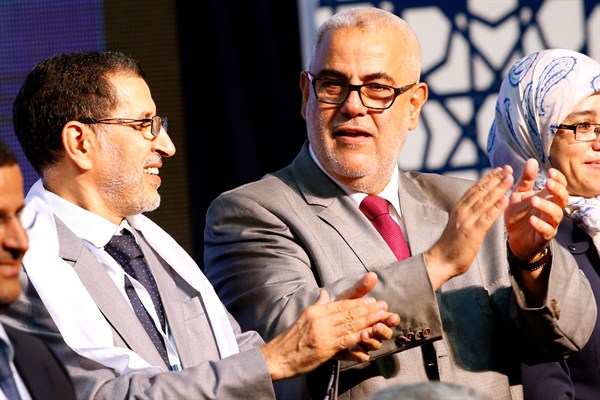Earlier this month, Mohamed Daadaoui wrote in WPR that Morocco’s political impasse suggested the monarchy was growing frustrated with the experiment—undertaken after the 2011 Arab uprisings—that allowed the country’s leading Islamist party to assume nominal governmental power.
Last week, that signal became clearer with King Mohammed VI’s decision to oust the party’s leader, Abdelilah Benkirane, from his post as prime minister. On Friday, Mohammed VI tapped former Foreign Minister Saadeddine Othmani—another top figure in the party, known as the Justice and Development Party, or PJD—to form a new government. The PJD endorsed the appointment over the weekend.
Mohammed VI’s removal of Benkirane was officially motivated by concerns that the prime minister’s failure to form a government did not appear to be heading toward any kind of resolution, five months after indecisive elections that saw the Islamist party finish first but without an outright majority. The deadlock—referred to as “blockage” by Moroccans—is unusual in Morocco, where parties are typically all too happy to join coalition governments so they can benefit from the patronage of the palace. But as Daadaoui explained in his WPR briefing, the blockage was itself orchestrated by the regime, reflecting its “desire to prevent the PJD from enjoying the benefits of its second consecutive electoral victory” last October.

